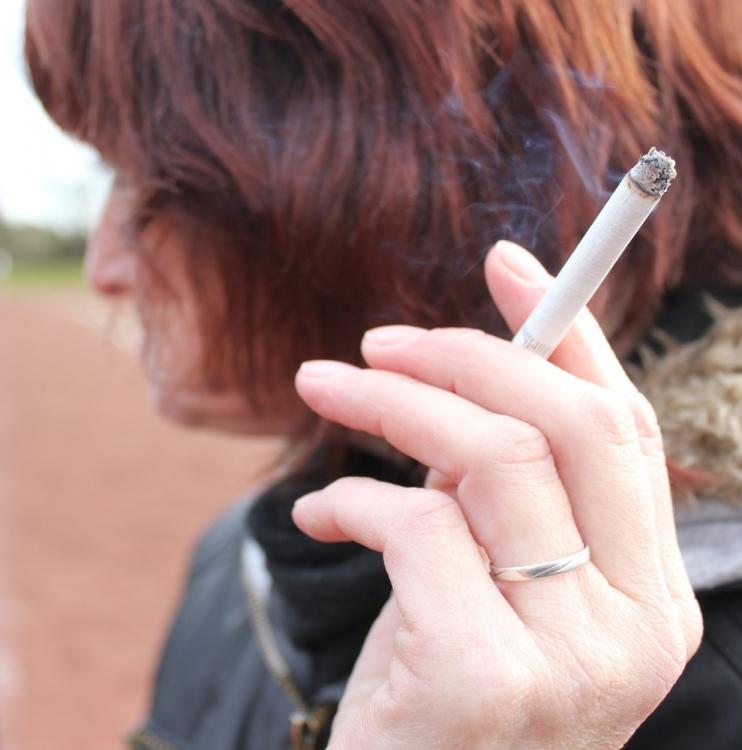
Section Branding
Header Content
Big Tobacco 15 Years Later: Where the Money's Gone
Primary Content

Fifteen years ago this month, tobacco companies agreed to pay states billions of dollars in the largest civil litigation settlement in US history.
Georgia has received about $2 billion from the settlement.
Where has the money has gone?
Some of it went to farmers in places like Claxton.
Ross Greene opens the metal doors to his tobacco barn at his farm in rural Evans County west of Savannah.
"This floor is perforated," he says. "There's a fan in the back. And it blows the air through the bottom and it blows it up through the tobacco. And that's how you cure it and dry it."
That dried tobacco has already been sold but the sweet smell from this year's harvest remains.
Greene is 26-years-old and wasn't even a teenager when states and tobacco companies agreed to a settlement.
Some of the money went to farmers to help them to ease out of tobacco. Greene remembers the hard times that ended three-generations of tobacco farming in his family.
"The prices dropped substantially after the buyout," Greene says. "And after the prices dropped, it got harder and harder to make it."
So, did the buyout actually help people?
"I mean, I'm sure it did," he says. "A lot of these people that's been just farming still continually farming, but they weren't growing tobacco, were getting some tobacco payments that I'm sure has helped their farm."
Local extension agent Mike Dollar says prices are up a bit and some farmers like Greene are getting back into tobacco. But he says the industry never will go back to how it was before the settlement.
"We went from 1,000 acres to less than 200 in a very short period of time," Dollar says. "We were left with a few and those few producers did grow tobacco for a couple more years and then they got out."
In the nation's tobacco heyday in the 1940's and 50's, towns like Claxton had lively summer tobacco markets where lots of money changed hands.
Since the settlement, money goes from companies like Philip Morris and RJ Reynolds to state capitals like Atlanta where lawmakers decide what to do with it.
And there's been another shift in the flow of funds.
This year, the state got about $200 million in settlement funds.
Tim Sweeney of the Georgia Budget and Policy Institute says about 80% of it went to Medicaid, the insurance program for the poor.
"Early on in the settlement, more money went to non-Medicaid sources," Sweeney says. "And over time, the state has directed more of the settlement dollars to offset what otherwise would be general fund spending in Medicaid."
Eric Bailey of the American Cancer Society says less than one percent of the state's settlement funds now goes to anti-smoking efforts.
"To be quite honest with you, looking at the numbers, it's quite tragic," Bailey says.
The settlement funds a tobacco telephone "quit line" for referrals and support.
Bailey says that amount isn't fulfilling the original spirit of the settlement -- to prevent Americans from dying.
"Smoking rates among youth use, especially cigar uses, has gone up exponentially over the last couple of years," Bailey says. "And we're not doing anything about it."
Georgia has funded university-based cancer research, but states don't have to use settlement funds on anything in particular.
In fact, some states put the money into their general budgets.
Georgia Department of Community Affairs Commissioner Gretchen Corbin says she's grateful Georgia accounts for the money separately.
Her agency grants settlement-funded aid aimed at rural economies.
"The tobacco settlement has placed over $362 million into our rural communities," Corbin says.
Back in Evans County, where tobacco farmer Ross Greene works, the grants helped pay for an industrial park, a 911 service and a produce packing facility.
Still, even with the help, rural counties struggle with some of the state's highest poverty levels.
Georgia will continue to receive funds from tobacco manufacturers for another 13 years.
FOR MORE INFORMATION ON GEORGIA'S TOBACCO SETTLEMENT MONEY:
A breakdown from the Georgia Budget and Policy Institute.
A review of the tobacco quit line.
A spreadsheet of tobacco prevention spending.
Tags: tobacco, tobacco farmers, Georgia Department of Community Affairs, Georgia Budget and Policy Institute, smoking, Evans County, cigarettes, Georgia rural economy, GPBnews, Philip Morris, orlando montoya, tobacco settlement, Claxton, American Cancer Society, Tim Sweeney, gretchen corbin, Ross Greene, Eric Bailey, RJ Reynolds
